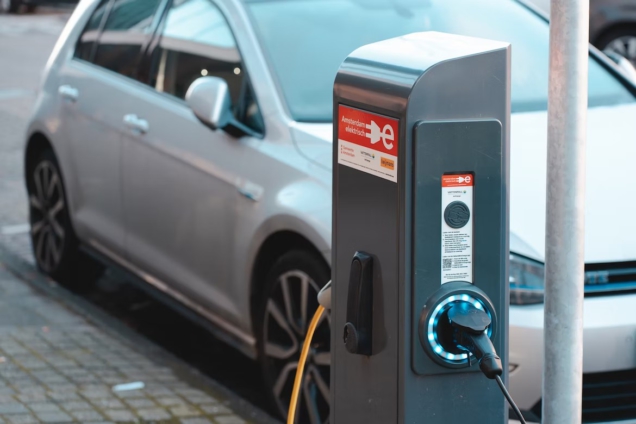
Audio By Carbonatix
The Institute of Statistical, Social and Economic Research (ISSER) has called for the adoption of electric vehicles (EVs) as a key strategy to achieve a low-carbon transport sector in Ghana.
In their latest social development outlook, ISSER emphasizes the importance of transitioning from traditional fossil fuel-based vehicles to electric vehicles to reduce greenhouse gas emissions and promote sustainable transportation.
The interplay between energy generation and consumption patterns plays a pivotal role in determining a country's economic future and overall well-being. In Ghana, the use of crude oil has been a significant contributor to electricity generation and industrial development, making it the largest portion of the country's energy sources.
However, recent data indicate a decrease in the total supply of crude oil products in 2021, dropping to 4,334 thousand tonnes of oil equivalent (ktoe) from the 2018 figure of approximately 4,416 ktoe.
This decline highlights the need to explore alternative sources of energy and shift towards cleaner and more sustainable options.
The transport sector is a major contributor to Ghana's energy consumption, accounting for about 38% of total final energy consumption in 2021.
In comparison, the industrial sector's share increased from 14% in 2018 to 16% in 2021, while the services and agriculture sectors maintained the same shares of 5% and 2%, respectively, for both years.
To address the environmental challenges posed by the transport sector, ISSER recommends the adoption of electric vehicles as a crucial step towards achieving a low-carbon transport system.
Electric vehicles run on electricity stored in batteries, eliminating the reliance on fossil fuels and significantly reducing greenhouse gas emissions. By transitioning to EVs, Ghana can make significant progress in reducing its carbon footprint and combating climate change.
Furthermore, the increased share of renewable power in the country's total energy mix will play a vital role in supporting the electrification of the transport sector.
By harnessing Ghana's abundant renewable energy resources, such as solar and wind, the country can generate clean and sustainable electricity to power electric vehicles.
The adoption of electric vehicles in Ghana aligns with global efforts to transition towards a greener and more sustainable future.
Many countries around the world have already set ambitious targets to phase out internal combustion engine vehicles and promote the widespread adoption of electric vehicles.
By embracing this transition, Ghana can not only reduce its carbon emissions but also benefit from improved air quality, reduced dependency on imported fossil fuels, and potential economic opportunities in the EV industry.
However, ISSER emphasizes the need for comprehensive policies and strategies, including the development of charging infrastructure, incentives for EV adoption, and awareness campaigns to educate the public about the benefits of electric vehicles.
Latest Stories
-
Police arrest suspect for unlawful possession and attempted sale of firearm
1 hour -
3 arrested in connection with Tema robberies
1 hour -
Your mouth on weed is nothing to smile about
1 hour -
25% university fees hike, what was the plan all along? — Kristy Sakyi queries
3 hours -
Some OMCs reduce fuel prices; petrol going for GH¢10.86, diesel GH¢11.96
3 hours -
Trump says health is ‘perfect’ amid ageing concerns
4 hours -
China’s BYD set to overtake Tesla as world’s top EV seller
4 hours -
Joy FM’s iconic 90’s Jam returns tonight: Bigger, better, and packed with nostalgia
4 hours -
Uproar as UG fees skyrocket by over 25% for 2025/2026 academic year
6 hours -
Japan PM joins fight for more female toilets in parliament
6 hours -
Ga Mantse declares war on fishing industry child labour
7 hours -
Adom FM’s ‘Strictly Highlife’ lights up La Palm with rhythm and nostalgia in unforgettable experience
8 hours -
OMCs slash fuel prices as cedi gains
9 hours -
Around 40 dead in Swiss ski resort bar fire, police say
10 hours -
AFCON 2025: Aubameyang and Nsue make history among oldest goalscorers
11 hours

